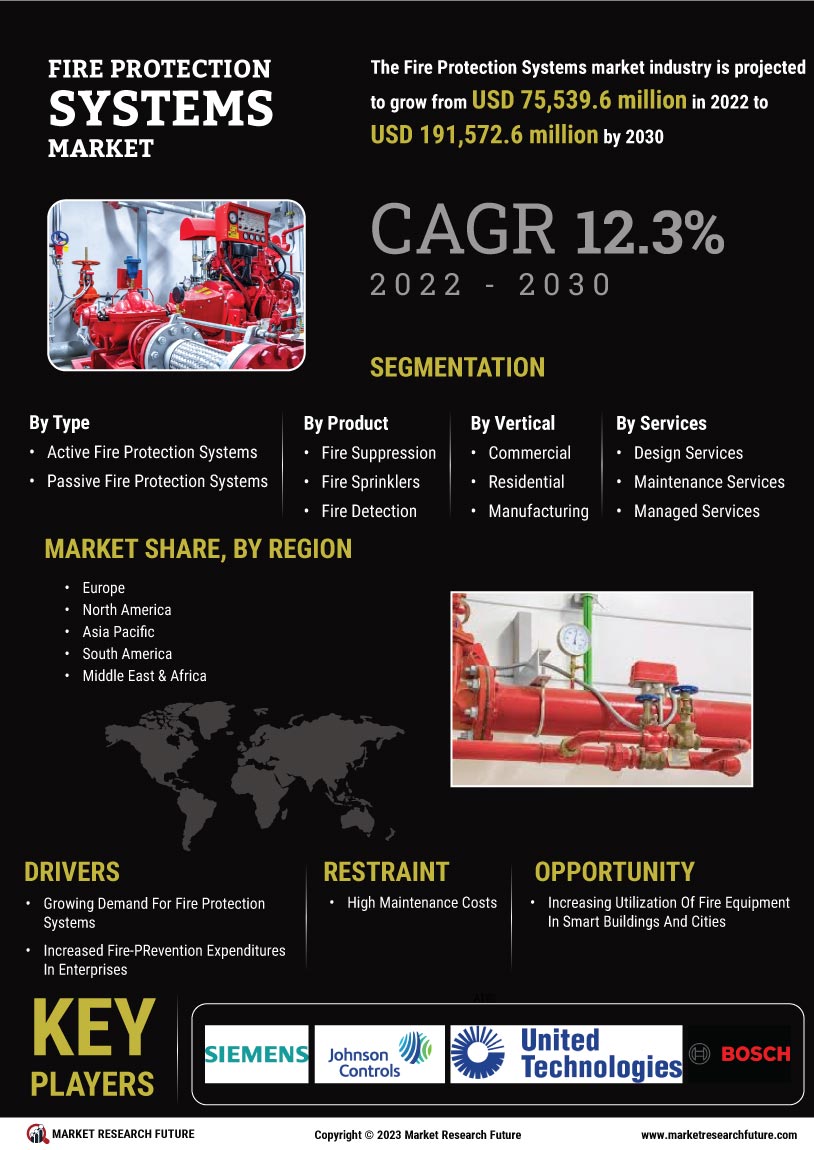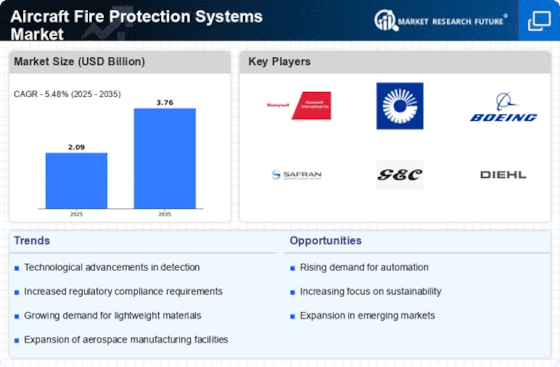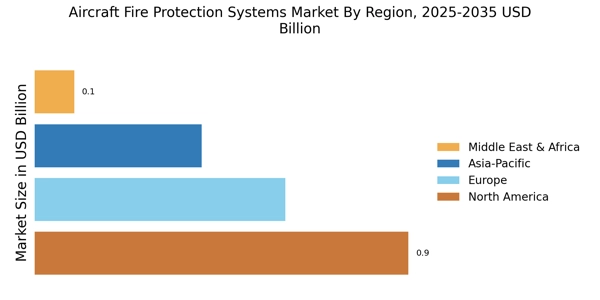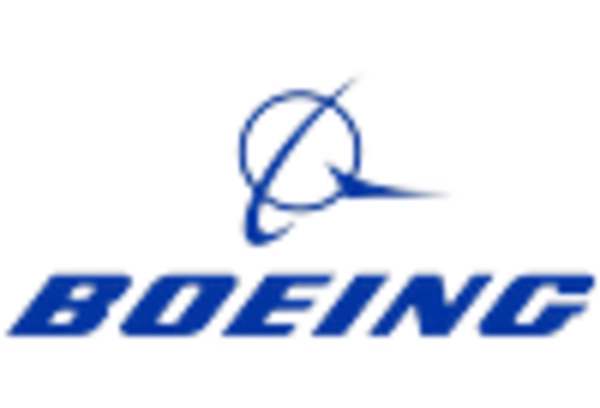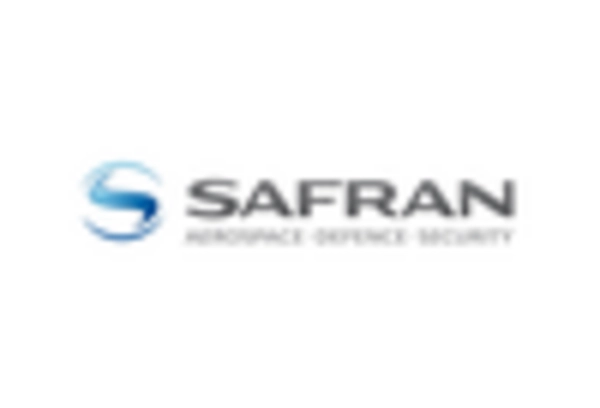Growing Focus on Passenger Safety
The Aircraft Fire Protection Systems Market is increasingly driven by a growing focus on passenger safety. Airlines and manufacturers are prioritizing the implementation of advanced fire protection systems to mitigate risks associated with in-flight fires. This heightened emphasis on safety is reflected in the investments made by airlines in upgrading their fleets with modern fire protection technologies. Furthermore, consumer awareness regarding safety standards is rising, prompting airlines to adopt more robust fire protection measures. As a result, the Aircraft Fire Protection Systems Market is likely to witness a surge in demand for innovative fire suppression systems that enhance overall safety and reliability in aviation.
Increased Aircraft Production Rates
The Aircraft Fire Protection Systems Market is poised for growth due to increased aircraft production rates. With the rising demand for air travel, manufacturers are ramping up production to meet consumer needs. According to industry reports, aircraft production is expected to reach unprecedented levels, with estimates indicating a production increase of over 10% in the next few years. This surge in production directly correlates with the need for enhanced fire protection systems, as new aircraft models require state-of-the-art safety features. Consequently, the Aircraft Fire Protection Systems Market is likely to benefit from this trend, as manufacturers seek to equip their aircraft with the latest fire protection technologies to ensure compliance and safety.
Regulatory Standards and Compliance
The Aircraft Fire Protection Systems Market is heavily influenced by stringent regulatory standards imposed by aviation authorities. Compliance with these regulations is not only mandatory but also critical for ensuring passenger safety. Regulatory bodies, such as the Federal Aviation Administration (FAA) and the European Union Aviation Safety Agency (EASA), have established comprehensive guidelines for fire protection systems in aircraft. These regulations necessitate the adoption of advanced fire suppression technologies and regular maintenance protocols. As a result, manufacturers are compelled to invest in innovative fire protection solutions to meet compliance requirements. This trend is expected to drive growth in the Aircraft Fire Protection Systems Market, as companies seek to align their products with evolving safety standards.
Emerging Markets and Regional Expansion
The Aircraft Fire Protection Systems Market is witnessing growth due to emerging markets and regional expansion. Countries with developing aviation sectors are increasingly investing in modern aircraft and associated safety systems. This trend is particularly evident in regions where air travel is becoming more accessible, leading to a rise in new airline operators. As these markets expand, the demand for reliable fire protection systems is expected to increase. Manufacturers are likely to focus on these emerging markets to capitalize on the growing need for advanced fire protection solutions. Consequently, the Aircraft Fire Protection Systems Market is set to benefit from this regional expansion, as companies seek to establish a foothold in these burgeoning aviation markets.
Technological Innovations in Fire Detection
The Aircraft Fire Protection Systems Market is experiencing a surge in technological innovations, particularly in fire detection systems. Advanced sensors and detection technologies, such as fiber optic and infrared systems, are being integrated into aircraft designs. These innovations enhance the speed and accuracy of fire detection, thereby improving safety measures. The market for fire detection systems is projected to grow significantly, with estimates suggesting a compound annual growth rate of over 5% in the coming years. This growth is driven by the increasing demand for enhanced safety features in modern aircraft, as manufacturers strive to meet stringent safety regulations. As a result, the Aircraft Fire Protection Systems Market is likely to see a shift towards more sophisticated and reliable fire detection technologies.
